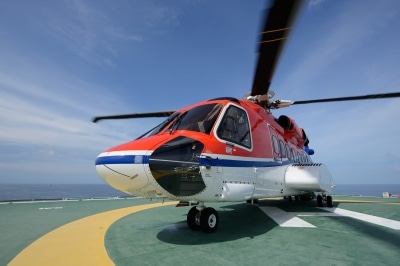On March 12, 2009, a Sikorsky S-92A helicopter destined for the Hibernia Oilfield crashed in the Atlantic Ocean off the coast of Newfoundland and Labrador. Seventeen passengers suffered fatal injuries in the crash and the lone survivor suffered serious injuries. In response to safety recommendations from the Transportation Safety Board of Canada, regulatory amendments have been proposed by Transport Canada. The proposed amendments are meant to reduce the risks associated with flights in support of offshore oil, gas or mineral exploration.
The proposed amendments contain the following new requirements:
(a) no offshore operations flights are to be conducted if the sea state reported at the destination exceeds the sea state for which the helicopter is certified to conduct a ditching in water;
(b) crew and passengers must be provided with and directed to wear appropriate transportation suits;
(c) crew and passengers must be provided with an emergency underwater breathing apparatus (“EUBA”) and each person on board must, in the 36-month period preceding the flight, have received appropriate EUBA training;
(d) if an offshore operations flight is conducted over Canadian waters that have a temperature of 10 degrees Celsius or more, then the EUBA must be attached to the floatation device carried on board the helicopter for that person;
(e) if the water temperature is less than 10 degrees Celsius, the EUBA must be attached to, or in the pocket or pouch of the person’s transportation suit.
These amendments are to be enforced through the assessment of fines, with a maximum fine of $3,000 for individuals and $15,000 for corporations. To review the Regulatory Impact Analysis Statement and the proposed amendments, click here.
Image courtesy of num_skyman at FreeDigitalPhotos.net


